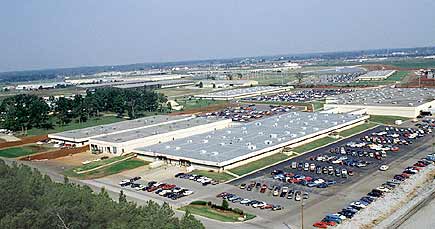How Has AI Advanced Reverse Logistics Solutions?
By Phil Terry, PALCO
Artificial Intelligence (AI) has made significant advancements in enhancing post sales supply chain services support/reverse logistics solutions. Gartner estimates through 2025, 25% of supply chain decisions will be made across intelligent edge ecosystems. These edges are where things, people and data connect. At the intersection of the edge is AI and the following areas are some of the advancements within our industry as a result:
- Optimized Return Processing: An efficient returns process addresses two major objectives. It serves to minimize business expenses while creating a positive customer experience. These service processes need to be globally consistent and adaptable to meet the demands of today’s market. AI algorithms analyze return patterns. By capturing, analyzing, and sharing data with our customers, it allows them to better understand why products are being returned. We leverage the analytics to optimize return processes while charting actionable strategies with our customers to achieve long-term business goals and improve the customer experience. This reduces risk and lowers total overall costs of handling returns.

- Predictive Analytics: Machine learning techniques have been widely adopted in the reverse logistics industry to help determine future outcomes. We’ve seen the rise of AI in predicting returns based on the published MTBF (Mean Time Between Failure) at the component level and system level, AFFR (Annualized Field Failure Rate) historical data. Combining these baselines with in-house inspection outcomes, test failure analysis has further refined process mapping and velocity.
- Routing and Logistics Optimization: We’ve seen the positive impact of comprehensive supply chain solutions on streamlining our customers’ business operations. This has resulted in increased efficiencies, improved profitability and exceptional customer experience. AI has accelerated this process to help determine routing and logistics solutions to optimize the transportation of returned products to minimize costs, strategic sparing philosophies and the environmental impact. We’re using AI, along with tactical plug-ins, to dynamically route items within the returns process based on real-time information.

- Quality Control and Refurbishment: In reverse logistics, the needs of diverse stakeholders have to be met including customers, customer’s customers, employees, partners and suppliers. Maintaining consistent quality and performance across these stakeholders is critical to remain competitive in the industry. As one example, AI-powered computer vision systems inspect returned products for defects and damage based on defined parameters to systematically identify non-conformance in design and manufacturing.
- Inventory Management: We’ve experienced the benefits of business intelligence to help companies manage returned product inventory. The data analysis determines the most advantageous disposition based on our customers’ objectives and the service level agreement between all parties. AI helps manage returned products more efficiently by providing real-time insights into the status and location of returned items and even reported field failure. Using AI across disciplines allows us to further enhance Six Sigma and Lean Process Management via forced process mapping and machine-to-machine communications leveraging upstream knowledge bases down to the serial number.
- Inventory Valuation and Demand Forecasting: AI improves the accuracy in valuing returned inventory based on historical data paired with future forecast and product lifecycles. It serves to enable companies to make more informed financial decisions. AI algorithms can help our customers forecast demand for refurbished or returned products, allowing companies to adjust their production and inventory strategies accordingly.
- Behavior Analysis: Monitoring in-depth returns patterns and behaviors against historical norms helps us to quickly identify irregularities outside established parameters. Setting customized thresholds by customer and channel types (direct, distribution and online purchases), product types and warranty policies, we can further investigate and identify the root cause of returns. By employing anomaly detection, thresholds and alerts we can advise our customers of data supported trends and serve as a basis to reduce revenue loss. These AI tools are helpful in identifying fraudulent returns, but the benefits go much further. It can help identify other return reasons such as application by the customer.
- Adaptive Policies: AI-customer behavior parameters we can add decision trees or business rules to the system and adapt policies and rules for different customer segments dynamically. This approach ensures that we maintain a balance between fraud prevention and a seamless customer experience. The typical OEM and their customer base seldom see any impact to service as this process is entirely managed in real-time behind the scenes. According to the National Retail Federation, returns account for $816 billion in lost sales for U.S. retailers in 2022. Last year, $84.9 billion accounts for fraudulent returns or 10.4% of lost sales.
- Environmental Impact Reduction: The function of reverse logistics can reduce an OEM’s environmental impact by repairing, refurbishing and recycling electronics while increasing its profitability and asset utilization. AI also serves to enable companies to make more sustainable decisions in the post-sales supply chain. It can reduce waste and promote the refurbishment and resale of returned items into untapped markets. Companies that track metrics important to their customers to reach new levels of efficiency, cost reduction and energy reduction will experience the biggest growth. This data is being included in sustainability reports to demonstrate a commitment to reducing waste and energy through improved reverse logistics practices.

AI has the potential to revolutionize reverse logistics by making the process more efficient, cost-effective, and environmentally friendly while enhancing the customer experience. As AI continues to evolve, it will serve an increasingly vital role in the management of post sales supply chain services support operations.
 Phil Terry
Phil TerryPhil Terry is Vice President of Sales, IT and International Operations at PALCO, a role he has served in since 2004. His career spans 37 years in telecommunications including customer service and support for technology products. At PALCO, he oversees implementation of reverse logistics data acquisition and management systems, customer facing software platforms and growth into new markets. He led the expansion of operations in Europe in 2010 as well as Mexico and APAC in 2015.